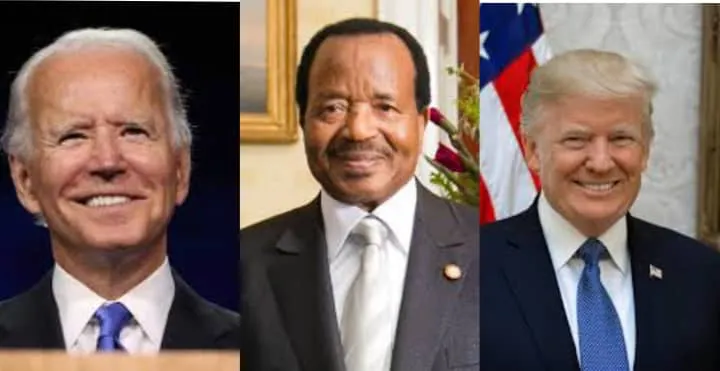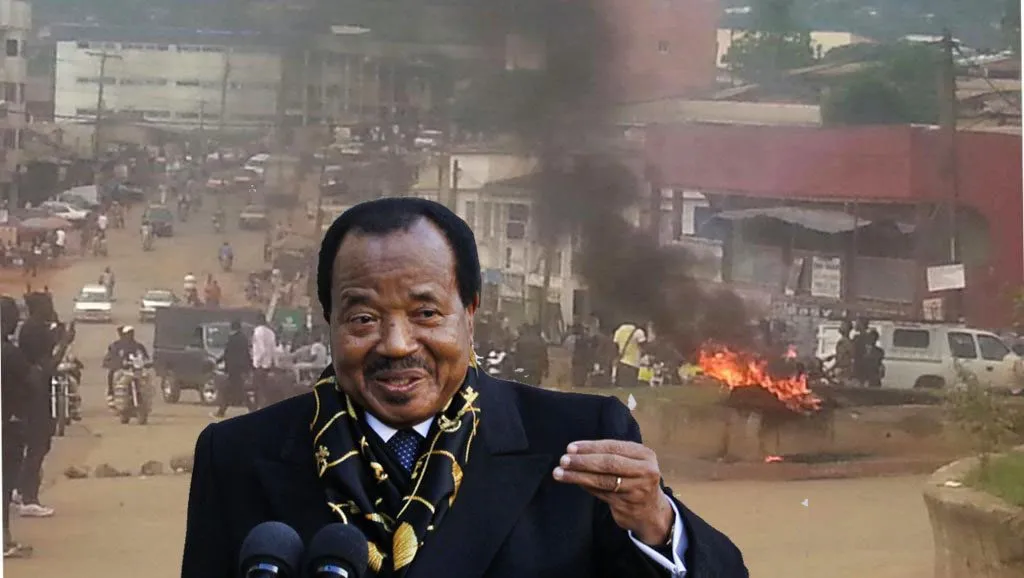Joe Biden takes over the United States Presidency on January 20, 2021 at a very determining time in Cameroon’s history.
Although many are those who have faulted the U.S. for giving a blind eye to the miscarriage of democracy in Africa and Cameroon in particular, things may never be the same again.
In fact, Cameroonians in the country’s troubled North West and South West Regions are waiting for Biden to unveil an Africa strategy that will see a return to peace and an end to the bloodshed.
For the last six decades, successive U.S. administrations, Republicans and Democrats alike have only shown interest for Africa’s resources and recently in counter-terrorism efforts.
Read more:
In the heart of the cold war, the U.S. turned to support seat-tight leaders in Africa as the masses live in misery. The human cost for the U.S. support for strongmen like Paul Biya is unimaginable.
Without going into the killings in the DR Congo by U.S. backed strongmen, let us focus on the implications of a Joe Biden presidency on Cameroon’s Anglophone crisis.
During the Trump Presidency, President Paul Biya of Cameroon tightened his grip on power, with thousands killed and hundreds of thousands displaced.
Trump with his “America First!” policy turned a blind eye to the atrocities in Cameroon’s North West and South West Regions even when some of the main actors are aiming bullets from his backyard in Maryland and Texas.
President Biya’s troops in Cameroon have killed no fewer than 4,000 civilians.
On New Year’s Day, the U.S. congress adopted a bi-partisan resolution “calling on the Government of Cameroon and separatist armed groups from the English-speaking Northwest and Southwest regions to end all violence, respect the human rights of all Cameroonians, and pursue a genuinely inclusive dialogue toward resolving the ongoing civil conflict in Anglophone Cameroon”.
It strongly condemns abuses committed by state security forces and armed groups in the North west and Southwest regions of Cameroon, including extrajudicial killings and detentions, the use of force against civilians and nonviolent protestors, torture, rape, kidnappings, and other forms of violence against women, and violations of the freedoms of press, expression, and assembly.
Implications
The resolution from congress has a lot to play when it comes to the Anglophone crisis. In fact, the first days for the Biden administration regarding Africa will predominantly be centered on Cameroon. The U.S congress resolution will define the U.S. foreign policy.
Being a bipartisan resolution, one supported by both Republicans and Democrats, the days ahead for Cameroon will be telling.
The tone of the resolution is the hardest yet. It calls on the U.S. Administration, the Executive, to take a number of actions that require follow up. This means Congress will be tracking what the administration does.
It mentions the possibility of targeted sanctions for officers in uniform as well as civilian leaders and armed groups – something that Yaoundé has not heard directly before.
It also appeals to other countries and international bodies to act. This could have a big snowball effect for the better. It especially called on France to stop doubled standards and cause the Yaoundé administration to act.
The resolution comes on the eve of the ascension to power of a new Administration, one that will take greater interest in helping resolve the Anglophone crisis than the previous one.
A new twist with interventionist Secretary of State
Joe Biden is attached to the promotion of democracy and the rule of law. Cameroon will no doubt be priority for the new U.S. administration given that both countries enjoy prospering relations. The Cameroon diaspora has done a lot to put Cameroon’s crises on the map.
Antony J. Blinken, a defender of global alliances and President-elect Joseph R. Biden Jr.’s closest foreign policy adviser, is expected to be nominated for secretary of state, a job in which he will try to coalesce sceptical international partners into new competition with China, according to people close to the process.
Mr. Blinken, 58, a former deputy secretary of state under President Barack Obama, began his career at the State Department during the Clinton administration. His extensive foreign policy credentials are expected to help calm American diplomats and global leaders alike after four years of the Trump administration’s ricocheting strategies and nationalist swaggering.
In his roles in the NSC under Obama and as deputy secretary of state, Blinken advocated for more robust U.S. involvement in the Syria conflict, and notably broke with his boss, Biden, to support the armed intervention in Libya.

He was also a close aide to Biden when the then-senator supported the U.S. invasion of Iraq in 2003.
He continues to believe that diplomacy needs to be “supplemented by deterrence” and “force can be a necessary adjunct to effective diplomacy. In Syria, we rightly sought to avoid another Iraq by not doing too much, but we made the opposite error of doing too little.” With Blinken and Biden, the Anglophone crisis may finally find its solution.
© Mimi Mefo Info




